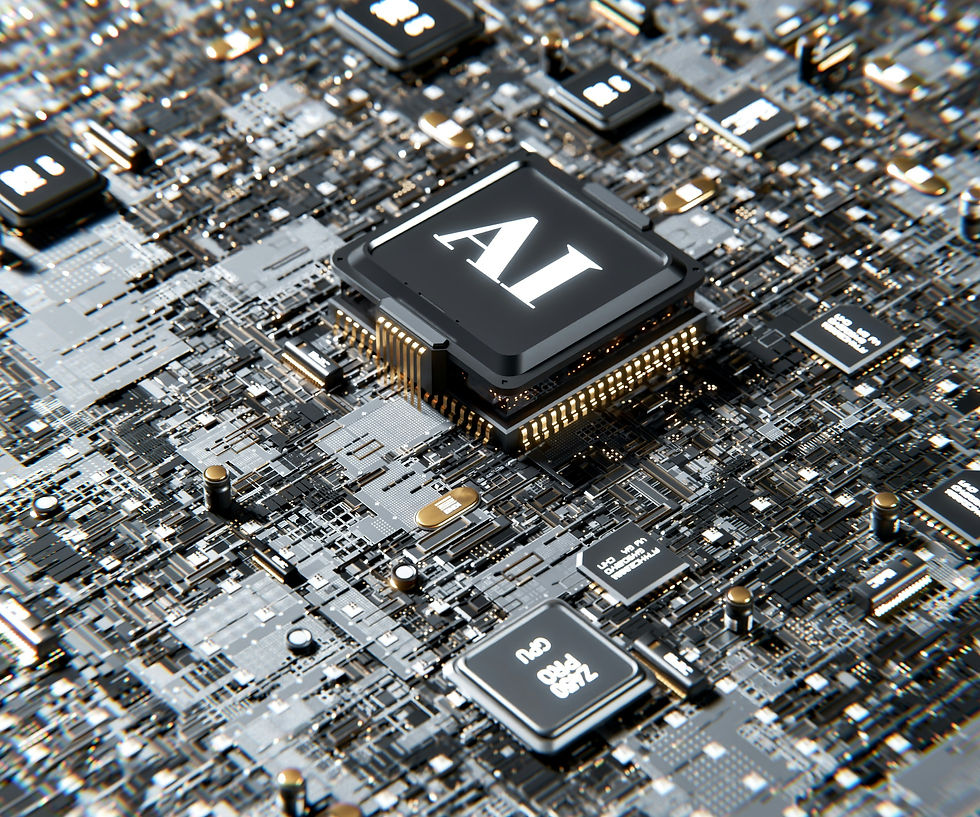Is Copywriting Dying? The future of copywriting vs AI and automation
- Alexia Oliveira

- Aug 4, 2025
- 3 min read
Quick discussion on how the changes and AI innovation may affect creative roles in the future
With the emerging trends involving automation and Artificial Intelligence, many people start to wonder what the future will hold for their professional careers. In special, people who work in content creation and marketing, like copywriters.
Creative roles such as these are usually the first ones to experience changes in the work scenario. After all, when robots are taught to do your job with no required remuneration the stakes are elevated to another level.
Of course, things have not yet escalated so dramatically. Since AI is still a developing technology, it still depends on human workforce to come to live.
In this article we’ll briefly explore the changes happening in copywriting right now and what it means for the future.

Change and transformation
Naturally, change is part of the human condition. A nation that never changes is bound to disappear. Because of that, it is impossible to fight against transformation and evolution. We can, however, question it and improve it.
With digital marketing is the same. Content writers and copywriters are always learning and adapting to new trends and styles with the sole reason of engaging and maintaining new audiences.
So why is AI posing such a threat that articles like this one are being frequently written?
Most people claim that Artificial Intelligence is unethical and threatens privacy and human art craft. Given that AI feeds from public online datasets, privacy breaches can happen more often than not.
Some experts even fear humans will start to become lazy and bored with automation. This article released in 2023 explores more of the cons of AI.
Additionally, scientists have raised the concern around the environmental impact Artificial Intelligence has on the world, as published in this 2024 study.
AI centred roles
With these changes happening, a new set of working opportunities has come to surface: AI centred or based roles. Big tech companies have put in place projects and departments focused only in creating their particular AI and automation software.
For instance, companies like Telstra have launched their own version of “ChatGPT” called “Ask Telstra”. This chat tool helps employees easily access specific information from the large internal data base without much hassle.
It is a tool designed to simplify day-to-day tasks, while still relying on human knowledge for operation and updates.
What does that mean?
It is important to embrace the changes that are coming our way while still questioning their morality and feasibility. Humans will always be required to invent and operate said technologies, so job opportunities will always exist.
However, creative roles might have a different workflow in the next coming years with the adaption of AI into the workspace.
Automation is not all bad, but it’s urgent that we hold conversations around the ethical and environmental aspects of Artificial Intelligence.
Worldwide governments need to start incorporating this new technology into their law frames, so it becomes regulated and safe.
What will copywriting look like then?
In summary, it is more likely Artificial Intelligence will end up reshaping professional roles into something else rather than replacing them altogether.
So the predictions are copywriting will not die, but it might be closely incorporated to AI in the near future.




Comments